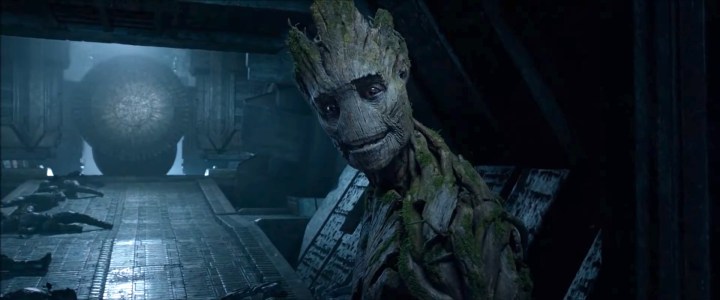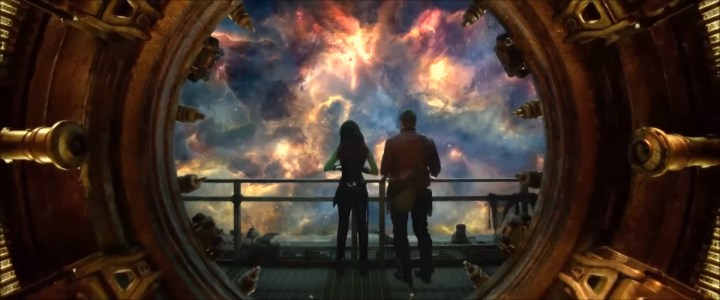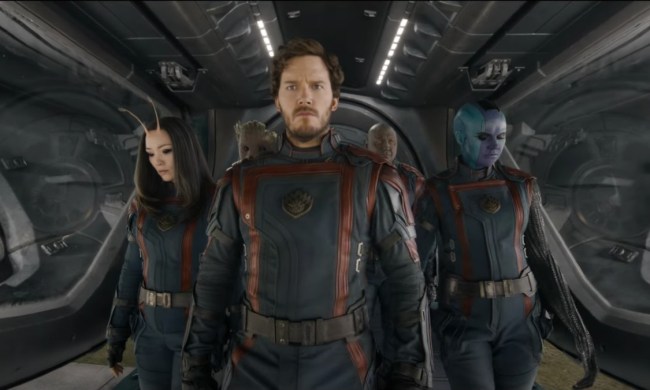James Gunn’s Guardians of the Galaxy remains one of the most beloved superhero movies in recent memory. Released during the Marvel Cinematic Universe’s second phase in 2014, this acclaimed sci-fi adventure has since produced two sequel films, a Holiday Special on Disney+, and a series of shorts following one of the team’s mascots, Groot.
While this film led to an expansive media franchise for Marvel Studios, it alone left a much bigger impact on the MCU that audiences can still see almost a decade after its premiere. Since Guardians of the Galaxy Vol. 3 is just about to wrap up the team’s final tour together, now’s a good time to review how the original film forever altered the MCU.
It made D-list comic book characters into A+ superheroes

Films like Iron Man and Thor proved to everyone that Marvel’s lesser-known heroes could lead successful blockbusters. However, the Guardians of the Galaxy were once obscure even amongst regular Marvel fans, who considered the team too silly and unpopular to helm a blockbuster movie. In particular, Rocket Racoon and his talking tree Groot seemed too bizarre even for the MCU ten years ago. True to their nature, the Guardians were the underdogs in Marvel’s vast library of heroes.
Despite this, Gunn displayed a passion and talent for taking unpopular characters and making them lovable and relatable heroes that audiences can route for. This approach succeeded with the Guardians, as their lesser-known characters allowed Gunn to take plenty of creative liberties with their origins and personalities to make them more appealing to comic book fans and those unfamiliar with the team.
Gunn would later use this talent to direct DC’s cult classic, The Suicide Squad, and he continues to bring little-known DC teams like the Creature Commandos and the Authority into the limelight. Plus, after the Guardians’ success, Marvel Studios took more risks by introducing more lesser-known characters into the MCU such as Shang-Chi, the Eternals, and Moon Knight. While this has surely contributed to the oversaturation of superheroes in mass media, Gunn’s film showed everyone that there is potential in any story and any character to succeed.
Humor

The MCU is well-known for being a lighthearted franchise that bombards audiences with jokes almost nonstop. However, Guardians of the Galaxy was unique in that it conveyed Gunn’s unusual but terrific sense of humor at a time when superhero movies got increasingly darker. Yes, Gunn is known for his raunchy brand of comedy, as shown by his pre-Marvel filmography, but Guardians integrates shocking jokes while also including Gunn’s quirky style. The fact that Rocket is obsessed with stealing prosthetic body parts and Drax doesn’t understand basic social concepts such as metaphors makes them hilarious in their own unusual way.
The film’s comedic tone has since been replicated in the MCU films that followed it, with varying levels of success. However, Gunn found the perfect balance between laughs and sincerity in his film, an achievement that seems rare in superhero movies these days. As a result, the film received praise from none other than director Steven Spielberg, who said in an interview at the Cannes Film Festival that it doesn’t “take itself too seriously” and that he felt he had “seen something new in movies, without any cynicism or fear of being dark when needed.” ‘Nuff said.
It introduced Thanos to the MCU

Technically, Thanos debuted in the MCU with a fleeting cameo in 2012’s The Avengers, but the evil Titan got a proper introduction in Guardians of the Galaxy, with Josh Brolin portraying the legendary MCU villain for the first time.
Floating over Ronan in his cosmic Sanctuary with his giant throne and golden armor, Thanos firmly established himself as the MCU’s biggest threat at that point. And when it was revealed that he was actually pursuing the Infinity Stones, fans were dying to see more of him seeking them out and reaching the apex of power he achieved in the iconic “Infinity Gauntlet” storyline.
It proved that a director could make their own unique MCU movie

A lot of critics have claimed that most MCU movies don’t have a distinct directorial voice and that they are more like studio products than auteur films. The fact that Marvel Studios gave up working with distinguished directors like Edgar Wright and Patty Jenkins supports this idea. While The Avengers and The Winter Soldier each conveyed a specific style in Joss Whedon and the Russo Brothers, respectively, most of the MCU’s films beforehand seemed so similar that audiences couldn’t tell who was in the director’s chair without the credits.
However, Guardians featured a unique style of filmmaking that helped audiences know that it was James Gunn’s own movie. This can be best summed up by how it is credited as “a James Gunn film” during the opening scene on Morag and not during the closing credits like in other MCU movies. All in all, Gunn built a weird and wild sci-fi world unlike any other, using a plethora of colorful and detailed visuals that could be considered a Masterclass in filmmaking. Since then, Gunn’s style has only grown more refined, and directors like Sam Raimi, Taika Waititi, Chloé Zhao, and Ryan Coogler have been able to leave their particular marks as artists in their own MCU projects.


